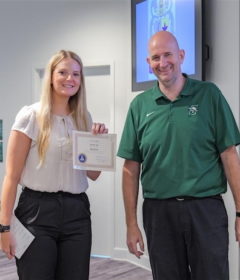Counselor Education Faculty Receive Two Grants Totaling $2.8 Million
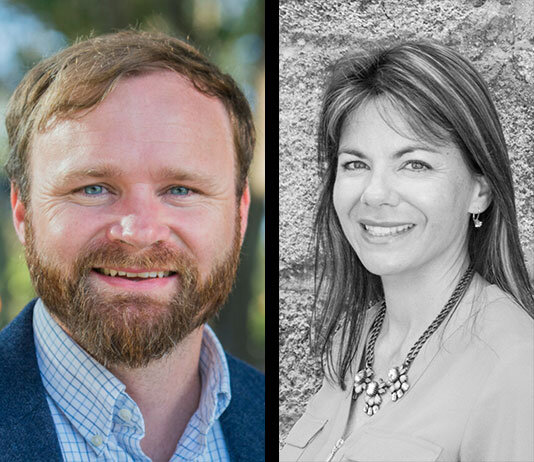

The Counselor Education Department will be providing students at Stetson University and other universities with specialized mental-health counseling training, thanks to two research grants totaling $2,764,570. The grant awards are the largest combined sum received by a department at Stetson.
Spiritual and Religious Competencies Project (SRCP)
The John Templeton Foundation has awarded a grant of $5,188,796 to the University of South Alabama and subawards to Stetson University, Baylor University, Bowling Green State University and the University of Maryland for its Spiritual and Religious Competencies Project (SRCP).
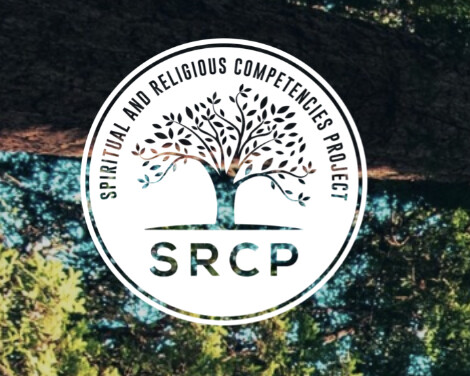 SRCP is designed to equip mental-health professionals with the competencies for addressing the religious and spiritual dimensions in people’s lives.
SRCP is designed to equip mental-health professionals with the competencies for addressing the religious and spiritual dimensions in people’s lives.
The SRCP grant goals are:
- Generate methods and tools for defining, studying and assessing religious and spiritual competencies.
- Establish methods for training mental-health professionals in religious and spiritual competencies.
- Synergize diverse stakeholders with a commitment to promoting religious and spiritual competencies.
- Fuel the momentum for systemic and cultural changes in ways that religious and spiritual competencies are addressed in mental-health care.
Stetson’s three-year subaward is $1,724,985, which is the largest private foundation grant in the university’s history to support a single-investigator faculty research project.
The “Research in Religious and Spiritual Competencies in Clinical Training” research project will be funded by Stetson’s subaward.
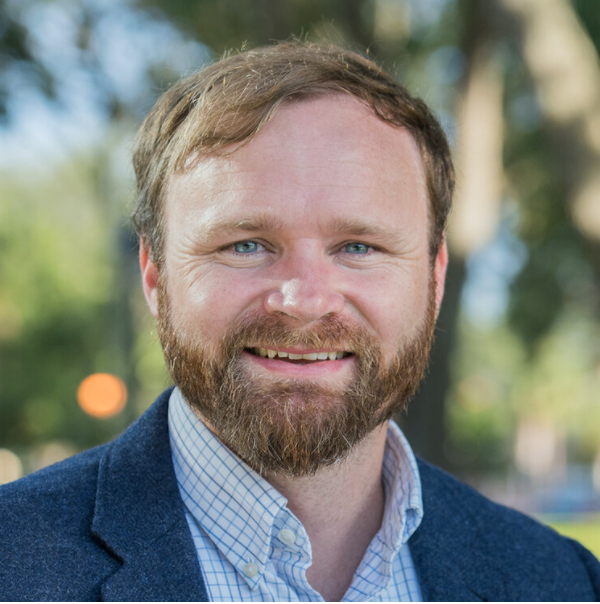
“The project was born out of a vision to bring the four major mental health disciplines, which are psychology, counseling, social work and marriage and family therapy, together and create religious and spiritual competence models for training and research,” said Jesse Fox, PhD, principal investigator for the Stetson research project.
Religious and spiritual competence is a holistic framework for training mental health professionals to recognize and be responsive to pious dimensions of their clients’ lives.
Fox and his colleagues Joseph Currier, PhD, professor of psychology at the University of South Alabama, who is the principal investigator for the entire research project, and Cassandra Vieten, PhD, executive director of the John W. Brick Mental Health Foundation, will develop and implement funded studies on religious and spiritual competence during the next three years. Stetson also will host two summits with Currier, Vieten and other top-research clinicians in the mental-health field to catalyze a new research and clinical training culture.
“Religion and spirituality offer people strong resources for living healthy lives,” added Fox, who is an associate professor of counselor education at Stetson. “Religion and spirituality help people cope more effectively with challenges and crises and provide pathways toward the ultimate meaning in the human experience.
“The goal is to bring an openness to training mental-health counselors to be more responsive to their clients and provide them with the knowledge to create environments that are characterized by deep compassion, acceptance and wisdom in navigating the many challenges people face from cradle to the grave,” said Fox.
Hatters Behavioral Health Coalition (HBHC) Program
The Hatters Behavioral Health Coalition (HBHC) Program is made possible by a $1,039,585 grant from the U.S. Health Resources & Services Administration (HRSA)/Behavioral Health Workforce Education and Training (BHWET) Program for Professionals.
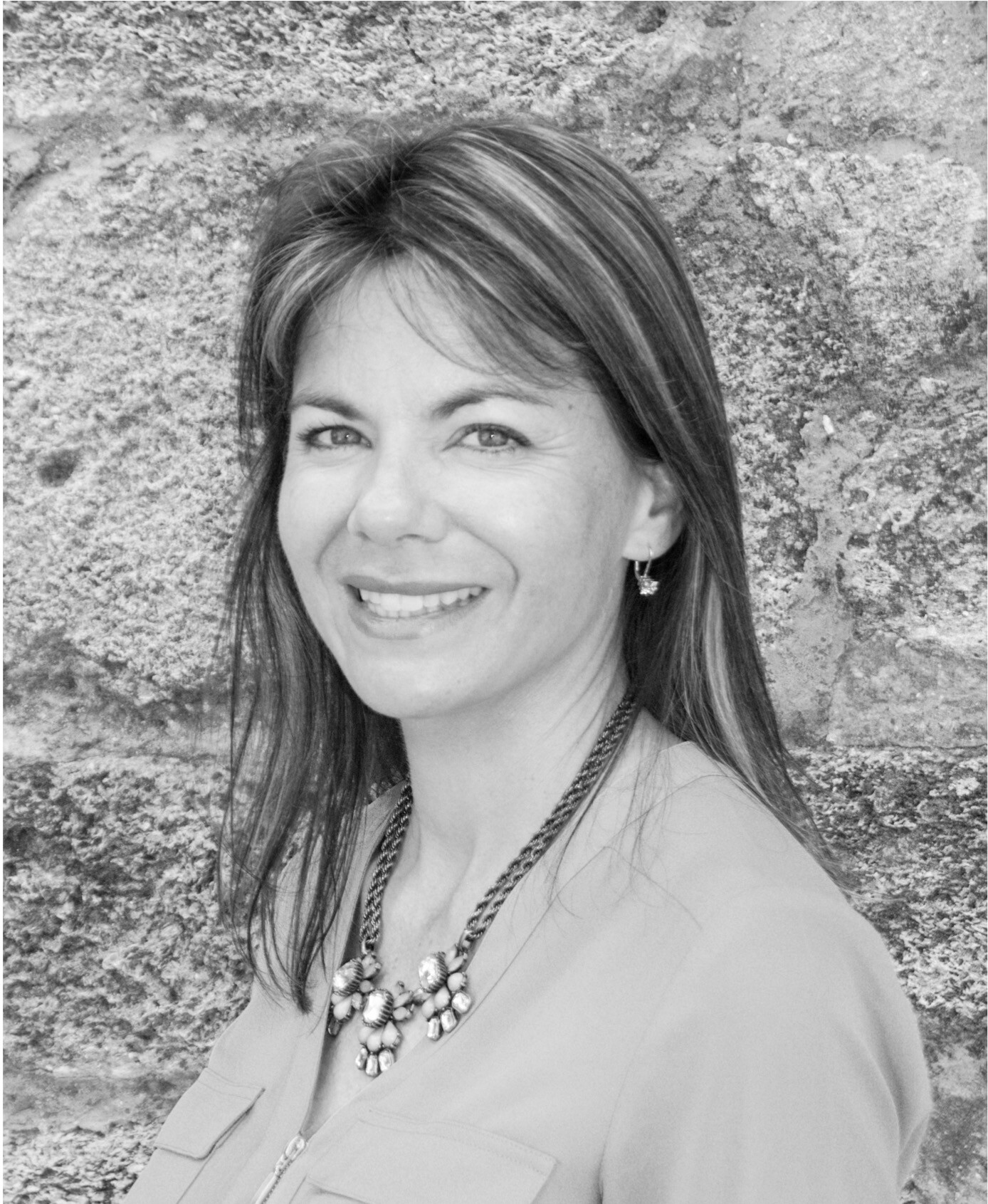
The four-year program will provide counselor-education graduate students with an opportunity to counsel underserved populations by melding behavioral and medical health in an interdisciplinary approach to client care during a 12-month internship. The interns also will receive a $10,000 federal stipend for their living expenses.
“This grant will significantly benefit our students now and in the future,” said Page Thanasiu, PhD, HBHC Program director. “The interns will receive specialized training and experience in interdisciplinary behavioral health-care approaches. They also will develop an area of expertise that provides considerable advantage when seeking employment after graduation.”
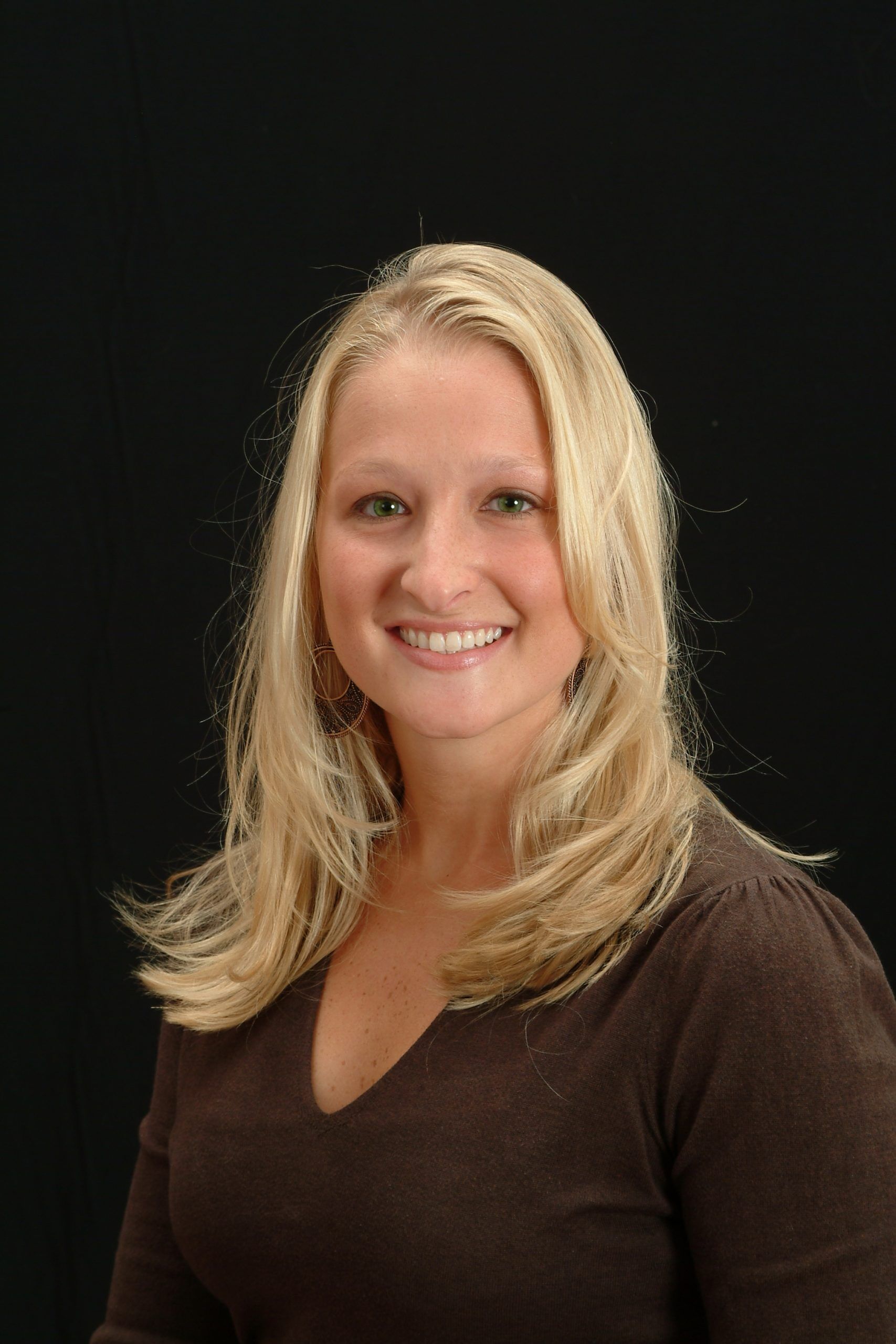
The HBHC Program Internship Coordinator Jacqueline Williams, PhD, assistant professor of practice in counselor education at Stetson, will be providing the grant-funded interns with assistance throughout the program.
The HRSA/BHWET grant goals are:
- Train counselors to competently work with medically underserved populations.
- Increase the number of professional counselors from underrepresented populations.
- Increase the number of organizations utilizing an interdisciplinary approach to patient care that includes both behavioral and primary health care.
 “It’s important that counselors and medical practitioners understand the ways in which a person’s culture impacts how they navigate and resolve an illness, stress and other challenges,” added Thanasiu, who is the Counselor Education Department chair. “Clients will have the best chance of obtaining success when mental-health counselors suggest treatments and coping strategies that align with clients’ values and beliefs.”
“It’s important that counselors and medical practitioners understand the ways in which a person’s culture impacts how they navigate and resolve an illness, stress and other challenges,” added Thanasiu, who is the Counselor Education Department chair. “Clients will have the best chance of obtaining success when mental-health counselors suggest treatments and coping strategies that align with clients’ values and beliefs.”
Another grant component is training programs that teach students to counsel adolescents, children and transitional-aged youth who are at risk for behavioral-health disorders. The Counselor Education Department met the criterion with its play therapy and childhood trauma courses.
The HBHC Program also will be teaming up with Stetson’s Health Sciences and Psychology departments. The collaboration will prepare students for medical and health-focused professions.
“The collaborative efforts by the Counselor Education, Health Sciences and Psychology departments will provide three separate student populations with a chance to learn about the importance of team-based care and how they can be active participants in this approach within their own career fields,” said Thanasiu.
The HBHC Program will have an interdisciplinary, advisory council, comprised of representatives from diverse health-care fields that will guide program development and monitor effectiveness. Partnerships with AdventHealth and other experiential training sites also will provide patients with integrated, behavioral and primary health care.
-Sandra Carr

